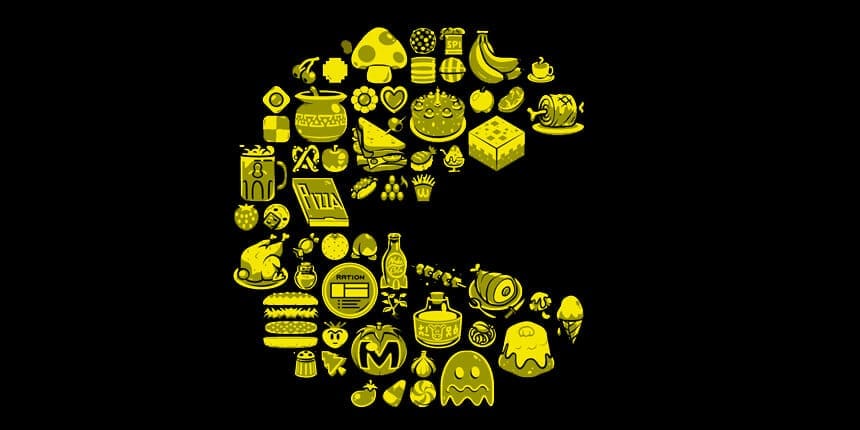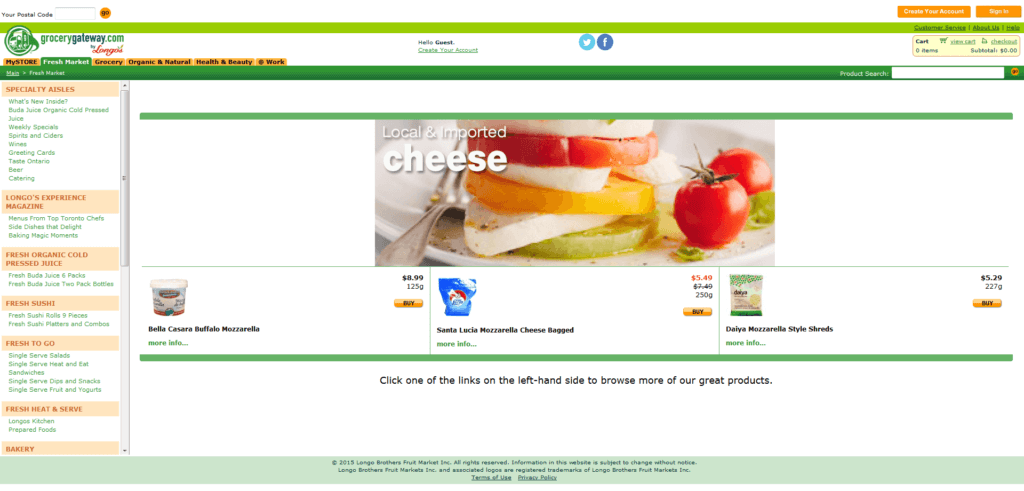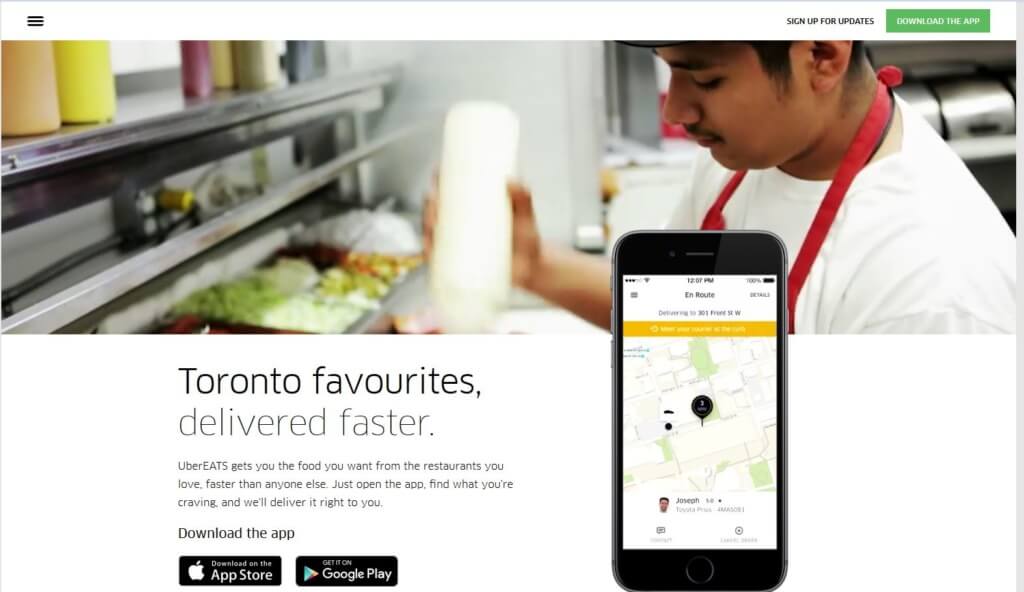
 Food-in-a-digital-world
Food-in-a-digital-world 
There are few businesses left untouched by the massive changes brought about by our digital-first world and the food industry is no exception. We’re taking a look at the changes the internet is having on the food we eat.
As a serious and devout foodie, watching the incredible options opened up by new technology has been an absolute delight. The ease with which we’re able to use apps and websites to discover and acquire great food is one of the best parts about our flourishing digital economy. However, many consumers may still be unaware of the vast options at their fingertips so I’d like to go through some of the more interesting services and offerings that have popped up, with a couple of small caveats.
This writeup is written from the perspective of someone who lives in a large city (Toronto). While there are certainly local or regional alternatives, you might have to do some digging to find one that operates in your city and town. Likewise, some of these companies work best at scale, and won’t have comparable offerings in small towns.
Grocery Delivery
This is the most straightforward application of technology: take the whole grocery shopping experience out of the equation and provide delivery right to your doorstep. These services have been around for a while and are pretty straightforward. You go to their site, order your food and it gets delivered for a fee. While the convenience factor is certainly here, quality and service varies wildly, as does price. The quality of the website can also vary, with some sites having a great UX and app experience, while others fall a little flat…
Sometimes paying a $1 surcharge on a can of tomato sauce just isn’t worth it. For people with mobility issues or an utter lack of time (and some disposable income) these services can be extremely helpful.

Some examples from Canada and the US include:
| Pros | Cons |
| No more lineups at the cash | Can get expensive between increased food costs + delivery |
| No more (or reduced) trips to the grocery store | Lack of selection |
| Can be done any time you have internet access | Quality can suffer |
| No more spending time looking for those Udon rice noodles your wife needs to make dinner tonight (hint: They’re in the health food section, even though they were in the asian foods section last week) | Might still need to pop down to the store to get that 1 missing ingredient |
Meal Delivery
For those who scoff at getting all their groceries delivered and are looking to take things to the next level, the latest craze of meal delivery will be right up their alley. This service allows users to pick and choose from a number of pre-planned meals (typically designed by high end chefs) and have the raw ingredients delivered once or twice a week. These meals come with all the fixings – vegetables, meats, sauces and toppings – everything you need to create the meal. The packages also include step by step recipe cards to walk you through cooking it.
Many of these companies have fairly sophisticated ordering and email marketing systems in place – reminding users to choose their meals every week, providing content around their selections and have a robust social media presence. Some more famous companies have celebrities who tweet or Instagram their food, with discounts available for those that get in on the action. While most engage in paid media, they tend to work best through word of mouth and self-referral systems as users tend to try and convert others for a free meal.
In total transparency, my wife and I began using one of these services several months ago after our co-workers raved about it, and given our extremely hectic schedules it was the perfect way to ensure we were sitting down to a home cooked meal at least 3 times a week – even if that means the meal was planned and groceries bought by someone else.

Some examples from Canada and the US include:
| Pros | Cons |
| Many of the above Pros from grocery deliver (Lineups, grocery store trips, etc.) | More expensive than buying groceries |
| Some great meal selection | Dependent on delivery schedules |
| Fun meals you wouldn’t normally make | Meal quality and quality of meat and veggies can be a bit of an unknown |
| Still gets you cooking in the kitchen | |
| Short meal time with minimal prep | |
| Less expensive than eating out or ordering in |
Fast Food Delivery
Differing from meal delivery, food delivery is the more traditional ‘someone delivers cooked food to my house’ service that we’re used to. Mostly gone are the days where you pick up the phone, dial, talk to a person and await delivery – now you pick up the phone, scroll to your favorite site (or app) and order from there. No pesky personal interaction required! Except for that whole ‘talking to the delivery guy’ part, but don’t worry, soon we’ll have drones doing the delivery right to your doorstep. No human interaction required!
While many restaurants have online ordering as part of their website – some of the larger chains have dedicated apps – there is an entire network of family owned or small restaurants that can’t justify the costs of setting up an online system. Enter the latest craze in easy food delivery: services that provide online ordering and delivery to your door. With a uniform menu system (all restaurants look the same) and a mix of delivery systems (some use the same driver as the restaurant, some have their own drivers, some have bicycle couriers), these systems have reached out and do all the connective work to ensure that the restaurants have the latest hours, menu items and that the restaurant can get the order properly from the website.

Some examples from Canada and the US include:
| Pros | Cons |
| Has really opened up the variety of food you can access | Minor delivery fee but about the same as any other delivery |
| Easy to use and uniform menu system means you’re not navigating a maze of some weird 3rd party developer’s site | Occasional disconnect between online menu/ordering system and restaurant |
| You can pay when you order so no paying at the door (tip can be included) | Food can theoretically take longer as a driver has to pick up food from a number of restaurants |
| Up to date tracking of meal delivery |
It hasn’t taken long for technology to add whole new dimensions to something as simple as food – and the landscape is continually changing. Not to mention the above technologies are just one part of the equation – we haven’t even gotten into the new and emerging apps for when you’re eating out.
In the end, the race towards who has the best user experience or what food delivery service is the most efficient will eventually fall by the wayside as the technology and offerings become more standardized. What we’ll remember are the experiences that matter – having a great quality meal you shared with friends and loved ones.
“Daily, our eating turns nature into culture, transforming the body of the world into our bodies and minds.”― Michael Pollan, The Omnivore’s Dilemma: A Natural History of Four Meals
Contact DAC today to find out more!

